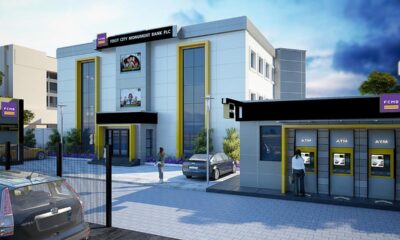Women empowered businesses and local enterprises involved in agribusiness, manufacturing, health care, and renewable energy will have access to long term funding from First City Monument Bank (FCMB), courtesy of a $50m credit facility from the African Development Bank (AfDB).
The $50m credit line will narrow the lending gap to underserved segments and complement FCMB’s lending efforts and operations in the Nigerian market. AfDB will disburse the funds to FCMB before the end of this year.
Mrs Yemisi Edun, Managing Director, FCMB, thanked the African Development Bank for having confidence in the Bank, saying the credit line would help it increase lending to high impact sectors of the Nigerian economy.
She said, “The $50m credit line will increase access to finance for women empowered businesses and enterprises involved in agribusiness, manufacturing, renewable energy and healthcare, enabling them to build back better post-COVID.
“We are delighted that a minimum of 30 per cent of the funds will go specifically to women empowered businesses, which would, in turn, contribute to stimulating gender equality and empowerment. Remarkably, it aligns with FCMB’s transformative agenda of boosting household economic resilience by improving women’s access to credit and work opportunities.”
In addition to the $50m, the AfDB will provide a technical assistance grant of $200,000 to FCMB through its Affirmative Finance Action for Women in Africa (AFAWA). The Women Entrepreneurship Finance Initiative, an international partnership supporting women entrepreneurs in developing countries, supports AFAWA. The assistance grant complements the loan and will further strengthen training, monitoring and reporting by the Bank.
In a statement, AfDB’s Director of Financial Sector Development, Mr Stefan Nalletamby, said, “We are pleased to support FCMB’s strategy to become a dominant player in addressing the funding needs of women-empowered and local enterprises. This project will extend valuable resources to critical but underserved segments during the ongoing COVID-19 pandemic, with its adverse macroeconomic impact”.
AfDB added that the project also advances its ten-year strategy and is consistent with three of its high-five strategic priorities. These are industrialise Africa, Feed Africa, and improve the quality of life for the people of Africa. This also aligns with the Nigeria Country Strategy Paper 2020-2024.
Recently, FCMB secured a $10 million facility from Oikocredit, a major global social impact investor and co-operative institution based in The Netherlands, to upscale its impressive financial support to SMEs and the agribusiness sectors in Nigeria.
FCMB is a member of FCMB Group Plc, Nigeria’s leading and most diversified financial holding company with subsidiaries that are market leaders in their respective segments. The Bank has built a strong base in various sectors of the nation’s economy by consistently offering cutting-edge solutions to its customers across segments.
Having successfully transformed into a retail banking and wealth management-led group, FCMB expects to continue to distinguish itself through innovation and the delivery of exceptional services.
To find out more about FCMB, please visit www.fcmb.com.

 Forex3 weeks ago
Forex3 weeks ago


 Naira2 weeks ago
Naira2 weeks ago
 Billionaire Watch2 weeks ago
Billionaire Watch2 weeks ago




 Naira2 weeks ago
Naira2 weeks ago




 Naira2 weeks ago
Naira2 weeks ago




 Naira1 week ago
Naira1 week ago




 Naira4 weeks ago
Naira4 weeks ago




 Naira3 weeks ago
Naira3 weeks ago




















